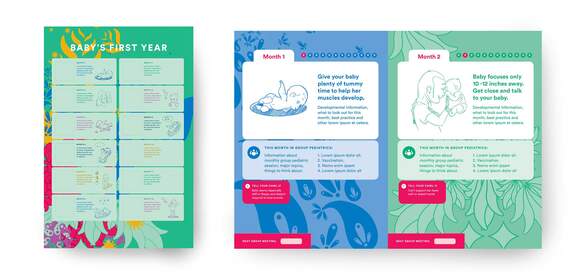They say it takes a village to raise a child, and in Amplify’s Early Childhood Development Challenge, the clinical team at Possible Health decided to put the old adage to the test.

The suite of tools
After working in the extremely rural and isolated region of Achham for several years, the doctors at Possible Health held a strong belief that reducing under-five mortality in the region would take more than the high-quality care they were providing at their clinic and the in-home visits their health workers performed. It would mean engaging the women of Achham in a new, group-based care system, relying on the women’s close personal ties and peer support networks to drive behavior change.
In late 2015, a team of IDEO.org designers joined Possible at their clinic in Achham to design tools and resources in support of this new vision for pediatric health. Together, there were a few key areas that were identified as opportunities for design: making group sessions engaging for busy mothers, designing a system model that encouraged repeat attendance, helping mothers track their children’s development milestones and spot red flags early, and finding ways to engage siblings and other secondary caregivers in best practices.

The tools we designed—learning games, a child health record, and health-themed trading cards for children—are currently being tested as part of a group case pilot in Accham. The local government, eagerly awaiting the results of the pilot, plans to scale up the model if it proves effective, which Possible calls the “holy grail” of public health interventions.






